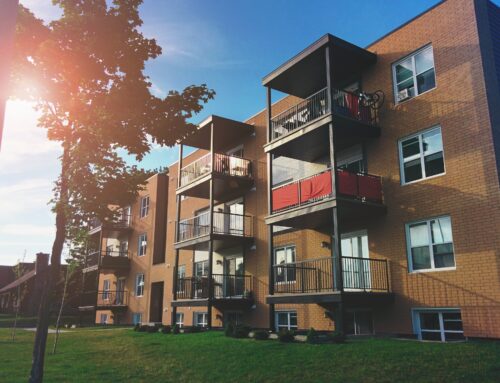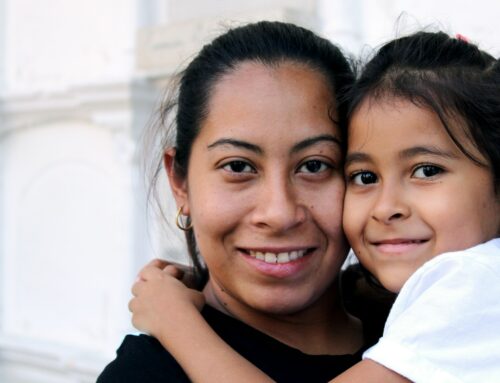When you relocate to Quebec, health services other than the medicare system are available to you and your family through the RAMQ. It is important to know your options, as there may be additional health services that you require, and instead of going to a clinic (public or private), you may be able to find what you need at the CLSC or one of the CSSS’s service centres.
What is the RAMQ?
If you settle in Québec as a Permanent Resident, on a Work Permit or as a Canadian citizen from another province, you and your family will have to register at the Régie de l’Assurance Maladie du Québec (RAMQ) and apply for a Health Insurance Card (often called the “carte soleil”). As a resident of Québec, the health card is compulsory.
In Canada, healthcare is a public service which is operated and maintained by the provinces, and the system in Quebec is somewhat different to the rest of Canada. Throughout Quebec and all of Canada, healthcare is free, and has been since the widespread social reforms of the 1970s.
Anyone carrying a RAMQ card will have free access to any and all of Quebec’s public healthcare services, which are of the highest quality, although there may sometimes be a longer than expected waiting period for non-emergency treatments. Healthcare professionals are paid by the government, so individuals never even have to pay for a consultation or make a co-pay.
For more comprehensive prescription coverage, and to avoid the longer waiting periods, some individuals prefer to pay for a private health insurance. Private insurance can also cover certain optometric and dental procedures, which the RAMQ does not. For example, composite resin fillings on posterior teeth and purely cosmetic restorations are not covered, but essential, standard dental treatments are. Furthermore, the RAMQ does provide optometric care for children, seniors, and emergencies, but certain treatments are not covered.
What is the CLSC?
CLSC stands for Centre Local de Services Communautaires (Local Community Service Centre) and is a type of community health care available in the Province of Quebec. This network of free clinics is maintained and administrated by the provincial government.
As a part of the Health and Social Service Centres (CSSS) in Quebec, the CLSCs provide social services and health services at their locations but also in schools, work places, and homes. The Province of Quebec has 147 locations, which provide a wide variety of physical and mental health services, including nursing care, blood tests, blood tests, morning-after contraception, medical consultations (with or without appointments), reintegration and rehabilitation, and public health activities.
Here are a few more points to keep in mind.
- CLSCs manage the local waiting list to get a family doctor. Given the wait times of these lists in Montréal, you’d better register as soon as possible!
- For those who don’t have a family doctor, CLSCs also offer public, free walk-in clinics, where you can see a doctor without an appointment (arrive early!). They can give you the addresses and phone numbers of other public clinics, if necessary.
- The goal of the CLSC is to integrate all medical and social services. Your CLSC can provide you with access to a nurse for you and your children’s immunizations (highly recommended), or for follow-up after an injury or surgery. Specialists such as psychologists, family therapists and speech therapists are also available in some CLSCs. Social workers are often available too.
- The social dimension of CLSCs is often underestimated. They organize community meetings and workshops on many aspects of family life, health and personal development. These social gatherings tend to be very useful for newcomers.
For a complete directory of CLSC locations in Quebec, check Wikipedia (which is sometimes more reliable than Quebec’s government run website).
What is the CSSS?
The CSSS (Centre de santé et de services sociaux) Health and Social Service Centres, are the link between the CLSC clinics, public residential centres (CHSLDs), youth centres, rehabilitation centres, specialized and general care hospitals within their territories. The CSSS help to oversee and facilitate the CLSC to ensure that individuals can find the care their need in a timely manner. They also look after the residents of long-term care and residential centres, while encouraging the public to adopt and maintain a healthy lifestyle. Furthermore, the CSSS work in conjunction with local and regional partners, in order to contribute to improving the overall public health within their territory.
Walk-In Clinics vs. Private Clinics
When you are sick and need to see a doctor without an appointment, you can go to a walk-in clinic. It can be public or private, in French or in English. Some offer services in other languages including Chinese, Portuguese, Spanish and Hebrew. To find a public walk-in clinic, where you don’t have to pay (provided you have your Health Insurance card), contact your CLSC. They will tell you if they have an in-house clinic where you can go, or direct you to another clinic in your neighbourhood. If you choose a private clinic, a consultation fee will be charged to you (typically $100). You can then ask your private insurance for a refund.
The problem with walk-in clinics is the waiting time. Be prepared to wait for hours (literally) before you see the doctor! It’s not rare for a nurse to welcome and sort patients according to their condition or priority. For this reason, many Quebeckers prefer to simply self-medicate based on the advice of a pharmacist. It’s also another reason why some opt for a private health insurance plan that covers the cost of private clinics, which tend to provide faster service and often have in-house specialists available. But even without private insurance, individuals can use a private clinic and pay the out-of-pocket fee; RAMQ insurance will still cover the cost of any prescriptions.
Learn more
For more information on the CSSS, CLSC and to find Quebec health and social services and locations, visit the Sante Montreal Search Portal.
You might also want to read our helpful articles on the Quebec Healthcare System and the RAMQ Health Insurance Card.
If you’re moving (or have already moved) to Quebec, be sure to check out our Online Relocation Guide for Montreal, featuring 20 chapters of essential facts, links and advice for getting acquainted with the local ways, customs and procedures, covering healthcare, housing, schooling, transportation and much more. We promise to save you time, save you money, and help you avoid the most common mistakes.
Photo credit: Unsplash








Leave A Comment